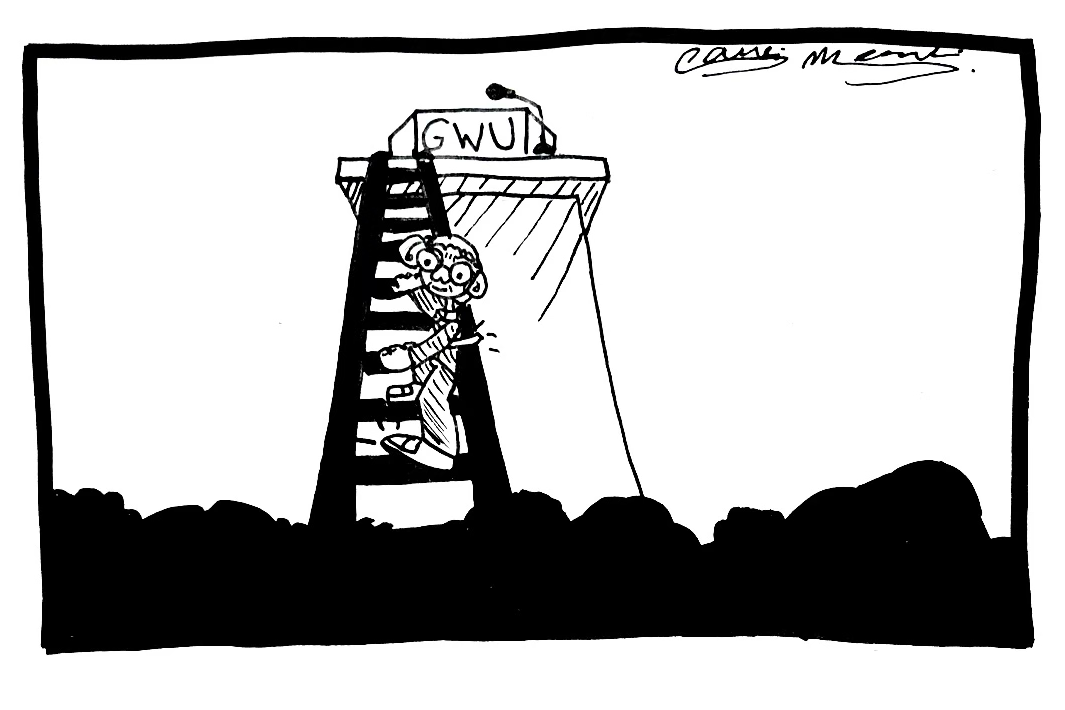The GW community has been rocked this past week by the claims of sexual misconduct leveled against Student Association President Howard Brookins.
In the wake of these allegations, people filled social media with support for the student who stepped forward. They shared information about the event and posted links to resources for sexual assault and harassment support. But others posted comments referring to these allegations as a “scandal” or merely remarked that they stand with the student who spoke out about her story.
Spreading information and resources is good and important. We must believe people who publicly talk about experiences with sexual misconduct. In this instance, a student came forward with claims of sexual misconduct against one of the most prominent student leaders, which is scary and takes courage. But for those trying to help, merely posting that you stand with the student or that you can’t believe another GW controversy is going in the books is nothing more than performative and takes attention away from the matter at hand.
Social media can be used to do a lot of good. Students can share resources, information and truths, but students should not confuse their role with an episode of “The West Wing.” Nobody needs to hear your completely self-serving and unhelpful remarks on how you think you’re doing the right thing when a student speaks out with a sensitive and vulnerable story. There are actual stories that need to be heard and valuable information that needs to be shared about ways to help those who have experienced sexual misconduct. Simply posting that you believe someone’s story with no further information or that GW can’t go a year without “scandal” is attention-seeking and trivializing what has happened.
Writing one line remarks clearly not intended to do any action is similar to the large quantities of people who posted a black tile in support of the Black Lives Matters protests. While these are two completely different subjects, the sentiment is the same. People confuse being an ally and being supportive with being performative. To be an actual ally and actually be supportive to the student who has come forward and to survivors of sexual assault and harassment, students need to be quiet, listen and share useful information. It is not what we say, but what we do that matters in the end. Students could tweet from here to eternity about how they support and believe survivors, but the only thing that makes a difference is showing up and actually showing this support.
There are so many more useful things to use social media for. Students could amplify the stories of survivors and share resources for those in need. Multiple student organizations have posted statements condemning Brookins’ accused actions and urging him to quit, several SA members have posted their feelings regarding their positions within the SA and offices like the Office of Advocacy and Support have posted resources available for students. These are useful things to retweet, comment on and share. These are valuable additions to the discussion. Students must walk a fine line on social media – before posting, think about what would tangibly add to the discussion.
The allegation and the subsequent dialogue about sexual misconduct is not about you. It is about the brave student who has stepped forward, Brookins’ alleged actions and the stories of survivors within the GW community. Give people the space to speak, the opportunity to see resources and to discuss how harmful these actions have been for the GW community as a whole.
There are people’s lives and stories on the line. Posting something quippy to make you feel like you’re being supportive and to show your couple hundred followers that you believe survivors achieves nothing.
Hannah Thacker, a senior majoring in political communication, is the opinions editor.
Want to respond to this piece? Submit a letter to the editor.



